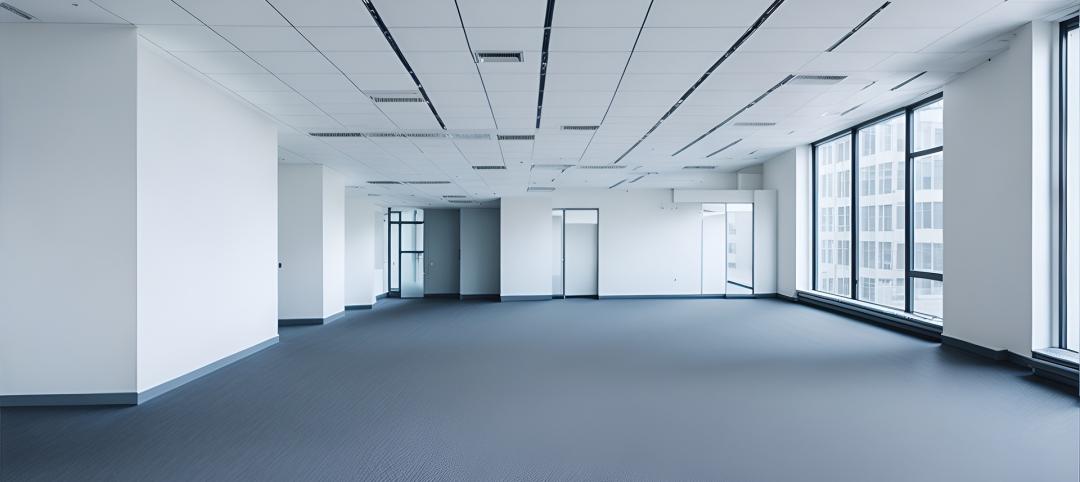The American Institute of Architects (AIA) announced that it has launched an online database that will let developers and architects network with investors interested in lending to projects that have been stalled primarily due to lack of financing.
The AIA designed the database, housed at www.aia.org/stalledprojects, to help address one of the persistent impediments facing the design and construction sector, which accounts for $1 in $9 of U.S. Gross Domestic Product, according to the U.S. Census Bureau. Each $1 million in new construction spending supports 28.5 full-time, year-round-equivalent jobs, according to a study by George Mason University economist Stephen J. Fuller.
“In large part the fortunes of the entire U.S. economy rest on whether the design and construction industry can create jobs,” said AIA President Clark Manus, FAIA. “For months, our industry has continued to suffer primarily because banks won’t lend. With this unprecedented online database portal, the AIA has decided to do something that could create more jobs and help grow the economy.”
The credit crunch crisis in design and construction shows no signs of abating. A report issued by the AIA’s economics and market research group finds that the share of projects stalled due to financing problems through August 2011 has almost doubled since 2008 and that one-in-five stalled projects directly result from financing problems. Indeed, almost two-thirds of architects responding to a May AIA survey reported at least one project stalled due to lack of financing.
To populate this database with both stalled projects and investors interested in financing them, the AIA in the last week initiated a communications campaign to solicit information about stalled projects around the country from its members and allied professionals. Since going live on October 31, the site has attracted projects seeking a total of almost $230 million in financing. The AIA expects these numbers to grow as word spreads throughout the architecture profession about this initiative.
“The four-month project to create this one-of-a-kind portal represents a comprehensive, intense effort by this organization to address an issue of vital importance to our members and to the economy in general,” said the AIA’s EVP and Chief Executive Officer Robert Ivy, FAIA. “As this initiative takes hold, we hope that the AIA’s Stalled Projects Page will prove to be an immense asset to architects, builders and developers throughout the country.”
By creating a login and clicking inside the “Get Started Now” box on the site, architects and developers can fill out a form and tell investors about their projects. By clicking in that same box, investors list their companies and tell project leaders about their firms and the types of investments they are interested in making. Once registered, both project owner and investor can see details on stalled projects or peruse investor information. BD+C
Related Stories
Adaptive Reuse | Sep 12, 2024
White paper on office-to-residential conversions released by IAPMO
IAPMO has published a new white paper titled “Adaptive Reuse: Converting Offices to Multi-Residential Family,” a comprehensive analysis of addressing housing shortages through the conversion of office spaces into residential units.
Mixed-Use | Sep 10, 2024
Centennial Yards, a $5 billion mixed-use development in downtown Atlanta, tops out its first residential tower
Centennial Yards Company has topped out The Mitchell, the first residential tower of Centennial Yards, a $5 billion mixed-use development in downtown Atlanta. Construction of the apartment building is expected to be complete by the middle of next year, with first move-ins slated for summer 2025.
Healthcare Facilities | Sep 9, 2024
Exploring the cutting edge of neuroscience facility design
BWBR Communications Specialist Amanda Fisher shares the unique considerations and challenges of designing neuroscience facilities.
Office Buildings | Sep 6, 2024
Fact sheet outlines benefits, challenges of thermal energy storage for commercial buildings
A U.S. Dept. of Energy document discusses the benefits and challenges of thermal energy storage for commercial buildings. The document explains how the various types of thermal energy storage technologies work, where their installation is most beneficial, and some practical considerations around installations.
Office Buildings | Sep 5, 2024
Office space downsizing trend appears to be past peak
The office downsizing trend may be past its peak, according to a CBRE survey of 225 companies with offices in the U.S., Canada, and Latin America. Just 37% of companies plan to shrink their office space this year compared to 57% last year, the survey found.
University Buildings | Sep 4, 2024
UC San Diego’s new Multidisciplinary Life Sciences Building will support research and teaching in both health and biological sciences
The University of California San Diego has approved plans for a new Multidisciplinary Life Sciences Building, with construction starting this fall. The 200,000-sf, six-level facility will be the first building on the UC San Diego campus to bridge health science research with biological science research and teaching.
Codes and Standards | Sep 3, 2024
Atlanta aims to crack down on blighted properties with new tax
A new Atlanta law is intended to crack down on absentee landlords including commercial property owners and clean up neglected properties. The “Blight Tax” allows city officials to put levies on blighted property owners up to 25 times higher than current millage rates.
Resiliency | Sep 3, 2024
Phius introduces retrofit standard for more resilient buildings
Phius recently released, REVIVE 2024, a retrofit standard for more resilient buildings. The standard focuses on resilience against grid outages by ensuring structures remain habitable for at least a week during extreme weather events.
Construction Costs | Sep 2, 2024
Construction material decreases level out, but some increases are expected to continue for the balance Q3 2024
The Q3 2024 Quarterly Construction Insights Report from Gordian examines the numerous variables that influence material pricing, including geography, global events and commodity volatility. Gordian and subject matter experts examine fluctuations in costs, their likely causes, and offer predictions about where pricing is likely to go from here. Here is a sampling of the report’s contents.
Adaptive Reuse | Aug 29, 2024
More than 1.2 billion sf of office space have strong potential for residential conversion
More than 1.2 billion sf of U.S. office space—14.8% of the nation’s total—have strong potential for conversion to residential use, according to real estate software and services firm Yardi. Yardi’s new Conversion Feasibility Index scores office buildings on their suitability for multifamily conversion.

















